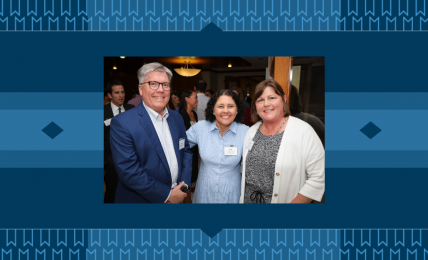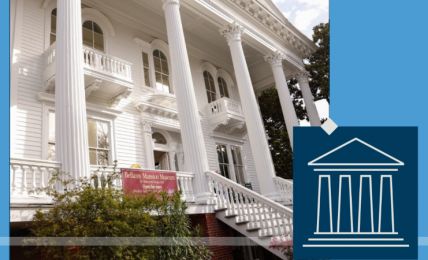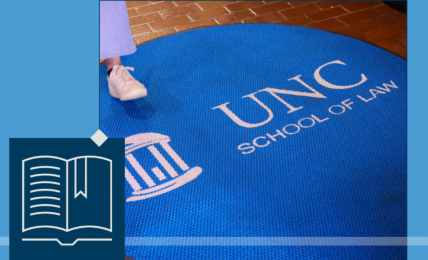By Michele Lynn
UNC School of Law hit the road in June for its annual summer tour, bringing together alumni, current students, and admitted students across six cities to celebrate the School and its successes. At their firms in Raleigh, Washington, D.C., Greensboro, Charlotte, New York City and Atlanta, Carolina Law alumni hosted an evening gathering which facilitated connections among attendees who enjoyed a brief program highlighting happenings at the school.
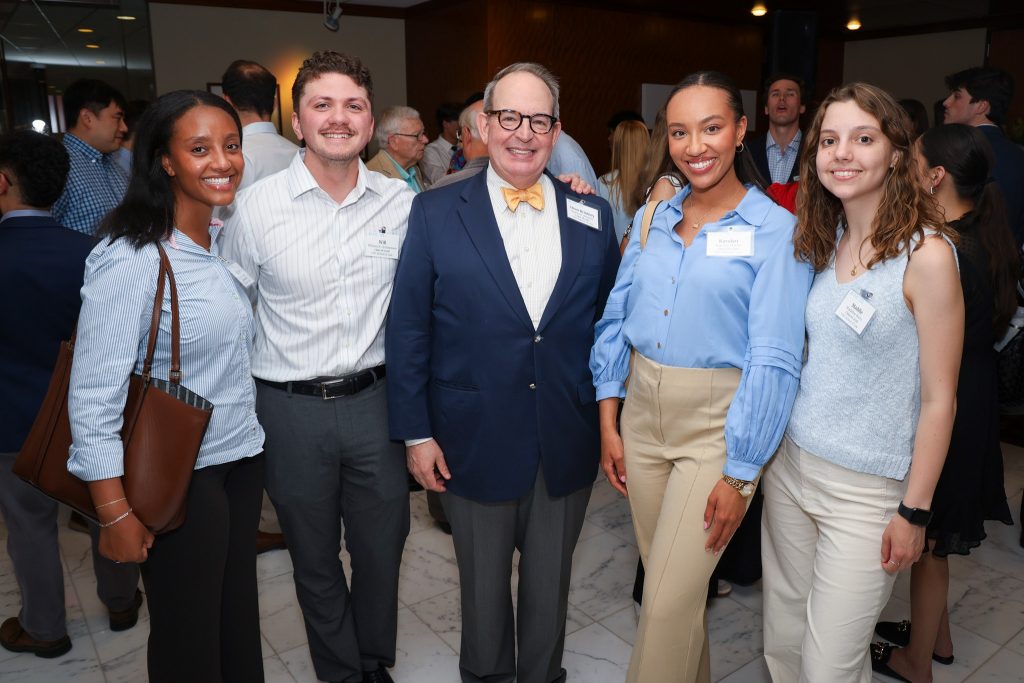
At each event, guests received a warm welcome from the host and then listened to a School update from a dean or associate dean, including the exciting news that Carolina Law is now ranked in the record-breaking 18th position among the country’s top law schools. Attendees were also pleased to hear directly from leaders about the strategic plans for the School, high-caliber applicant pool, and career successes of fellow alumni.
One of those alumni is Aubrey A. Rothrock III ’90, ’93 (JD), a partner at Squire Patton Boggs in Washington, D.C. Rothrock, who hosted the capital city’s reception at his firm, was pleased to see the range of careers in which Carolina Law alumni are engaged, with graduates working for the federal government, judges, and private law firms.
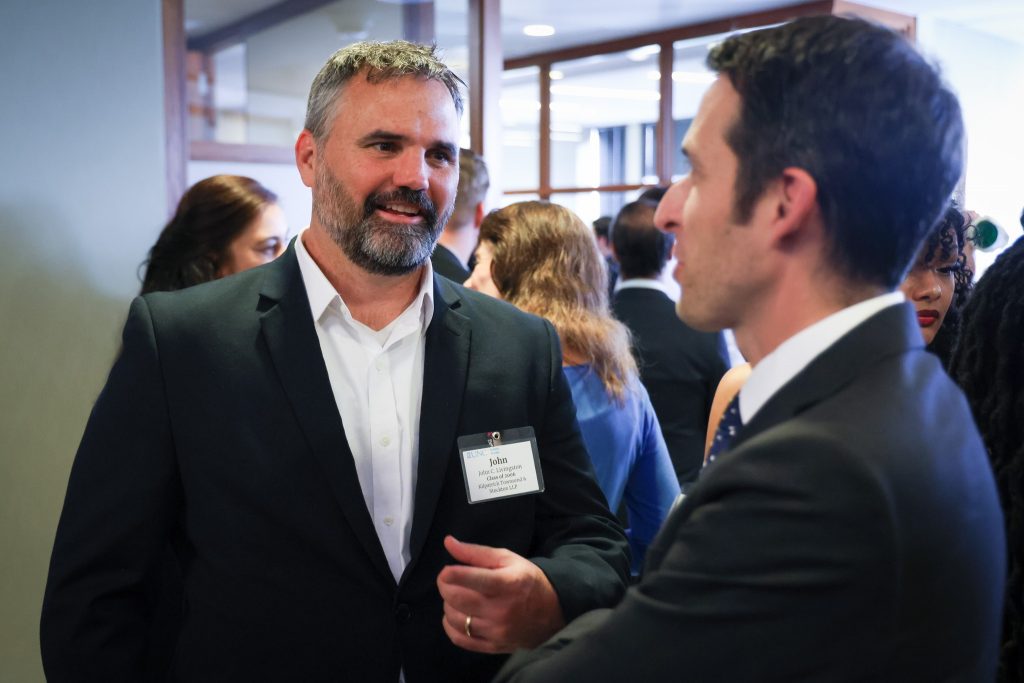
“It’s great to see how the Carolina Law alumni presence has grown steadily in Washington, D.C., as well as throughout the country and the world,” said Rothrock. “There is such a great sense of community and family at Carolina Law and among its alumni. That three-year experience translates into a lifetime community.”
Rothrock said that he is quick to respond whenever he receives an inquiry from someone thinking about applying to Carolina Law or from current students or alumni. “We obviously have a shared interest in the success of Carolina Law,” he said. “That network is really important, and I will do everything in my power to facilitate it.”
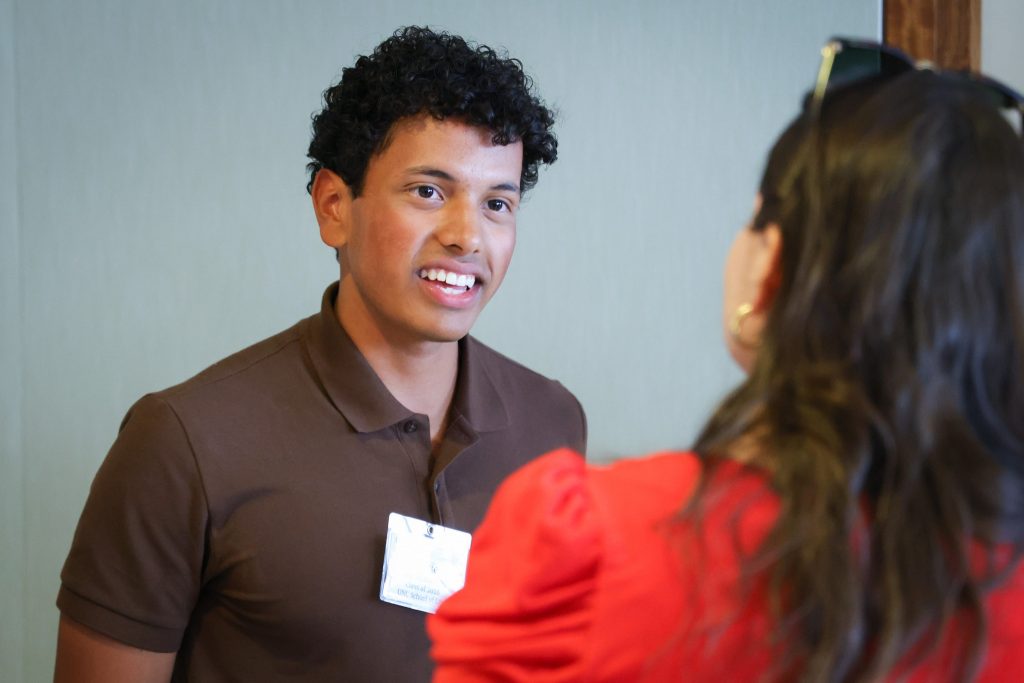
As a double Tar Heel whose dad and sister also attended Carolina, Rothrock said that he remains proud about having a top-flight public undergraduate school and law school in our state. In addition to hosting other gatherings of Carolina Law alumni in Washington, D.C. throughout the years, he returns to campus each year. “I jump at the chance to interview and recruit phenomenal law school candidates,” he said. “To see the quality of the student body at Carolina Law is really encouraging.” He is pleased that some of his candidates chose to work for Squire Patton Boggs.
“Carolina Law is going in a great direction, and in the Washington, D.C. area, the network has never been stronger,” said Rothrock. “I think it’s only going to grow.”
The Charlotte event was hosted by Richard Farley ’87, senior counsel at Katten Muchin Rosenman, who has hosted a few receptions for Carolina Law alumni over the years. He enjoyed meeting the alumni and committed students who attended, and said, “It was good to talk to them and see the people that the law school is bringing in.”
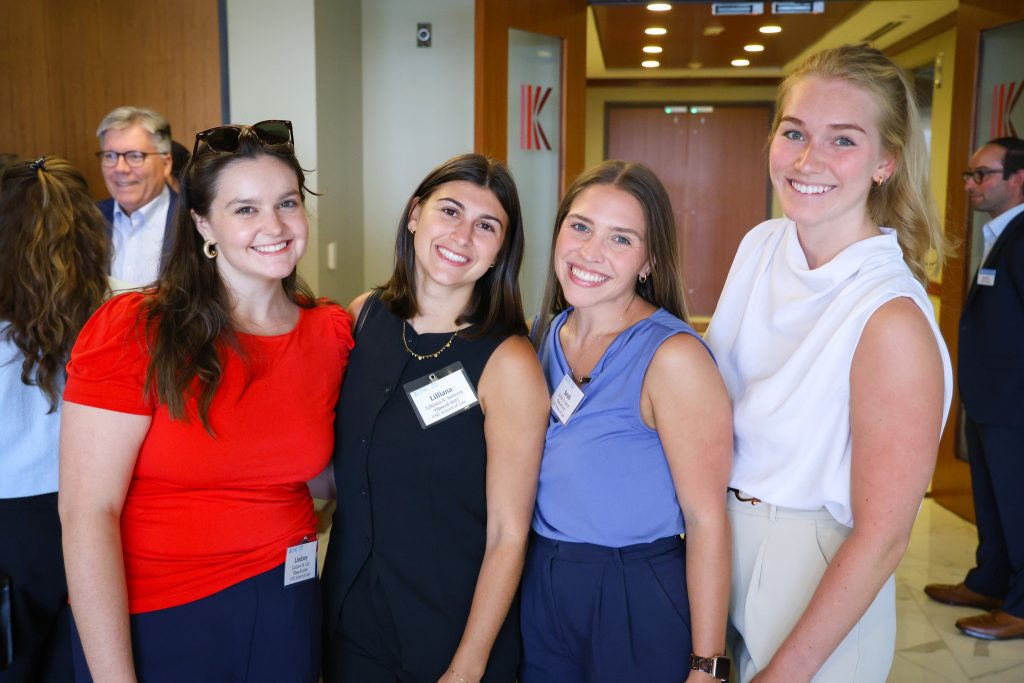
He agreed with Dean Emeritus Martin Brinkley ’92, who presented on the importance of the School’s Law Foundation board and of providing scholarships.
Farley’s financial support of Carolina Law began with a donation soon after he graduated and has continued throughout the years. Having attended public universities for both his law degree and his undergraduate degree in his native South Carolina, Farley is grateful that receiving his education didn’t pose a financial burden.
“I essentially went to law school for free since my tuition was less than $1,000 a year,” said Farley. “That created in my mind an obligation to give back. I didn’t need scholarships and it became evident that people going to school much later than I did need that financial support.”
Farley and his wife, Cynthia, set up a family fund to support scholarships for students interested in working in disability law. His eight years of service on the Law Foundation’s board helped him learn more about the scholarship system, where Carolina Law stands in terms of alumni participation and student needs.
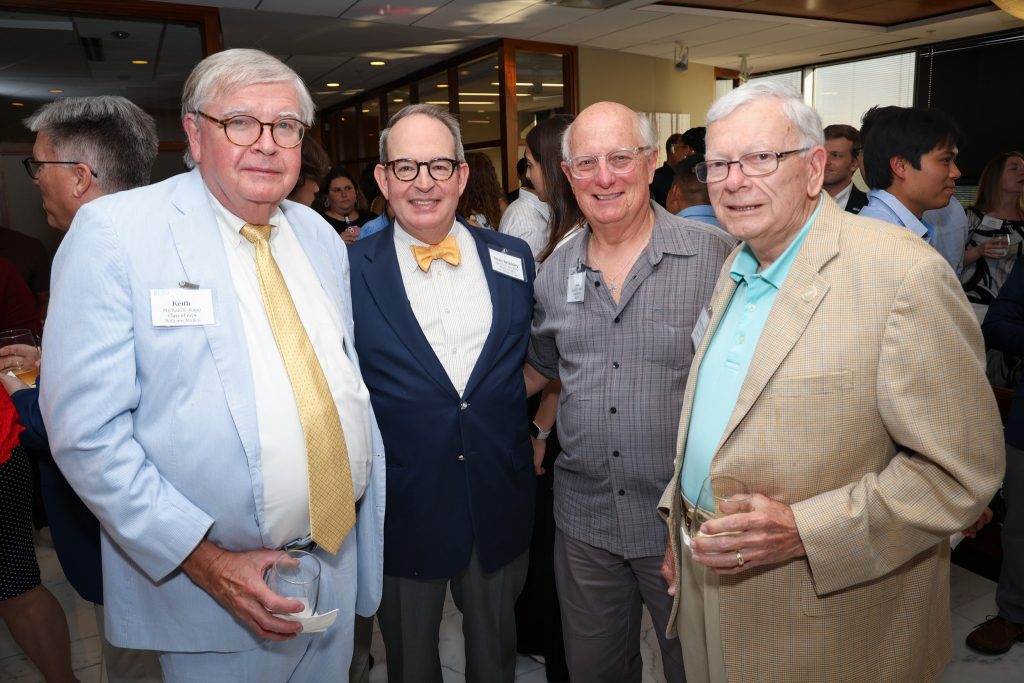
“That redoubled my commitment,” said Farley. “I would like to see more alumni coming out of law school without being burdened with six-figure debt. Not having debt makes it easier for graduates to pursue the career they really want and also makes it easier for people who want to go into public service.”

